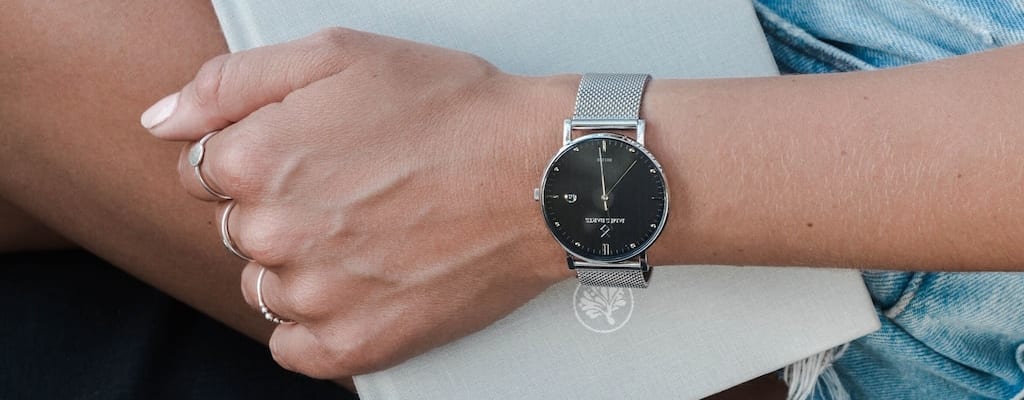go commando: Idiom Meaning and Origin
What does ‘go commando’ mean?
The idiom "go commando" means to not wear any underwear.

Idiom Explorer
The idiom "shirtless" is used to describe someone who is not wearing a shirt or is without clothing on their upper body. It often conveys a sense of casualness or informality.
The idiom "keep one's pants on" means to remain calm, patient, or to refrain from becoming overly excited or impulsive in a given situation.
The idiom "in the nip" means to be naked or without any clothes.
The idiom "in the buff" means being completely naked, without any clothing on.
"In the altogether" is an idiom meaning to be completely naked or undressed. This phrase is often used humorously or euphemistically to refer to someone's state of nudity.
The idiom "head to toe" means completely or fully, often referring to being covered or dressed from head to toe in something.
The idiom "half-naked" means to be partially unclothed or not fully dressed. It can refer to someone who is not wearing enough clothing to cover their body, generally exposing the upper or lower part. The idiom is used to describe someone in a state of undress or immodesty.
The idiom "go without saying" means that something is so obvious or well-known that it doesn't need to be stated explicitly.
The idiom "go with one's gut" means to rely on one's intuition or instinct when making a decision, rather than using logical reasoning or analysis.
Bare Underneath
The idiom "go commando" is a colloquial expression used in informal English language. It means to not wear underwear, particularly referring to not wearing any undergarments under one's pants or skirt. The origins of this phrase can be traced back to the military usage of the word "commando" to refer to highly-trained special forces soldiers. The phrase "go commando" began to be used in the context of not wearing underwear in the mid-1970s, although the exact source of its origin remains uncertain.
One related idiom that conveys a similar meaning is "in the buff." This phrase is often used to describe someone who is completely naked, without any type of clothing. It shares a sense of freedom and nonconformity with "go commando," as both involve going without the typical undergarments or clothing. Another related idiom, "in the nip," is another way to express being without clothing, specifically referring to being completely naked. Both "in the buff" and "in the nip" share the same sense of liberation that "go commando" embodies.
Another related idiom that can be used interchangeably with "go commando" is "shirtless." This term refers to not wearing a shirt and is often used in the context of being without any upper body clothing. While it doesn't specifically refer to the absence of underwear, it can still convey a sense of liberation and nonconformity in terms of traditional clothing norms.
A phrase that can be used in place of "go commando" is "go without." This phrase has a broader meaning and can be used to describe going without any kind of necessary item or action. For example, one might say "I forgot my umbrella, so I had to go without it in the rain." In the context of not wearing underwear, one could say "I decided to go without today." This alternative phrase captures the essence of "go commando" in a more general sense.
Another related idiom that can be used instead of "go commando" is "go one's own way." This phrase commonly refers to someone who chooses to take a different path or make their own decisions, independent of the opinions or expectations of others. In the context of not wearing underwear, one could say "I prefer to go my own way and not wear any." Both "go commando" and "go one's own way" capture the sense of individuality and nonconformity.
Although it is difficult to determine the precise reasons for the popularity of "go commando" and related idioms, one possible explanation is the rebellious and carefree association they carry. Going without underwear or clothing can be seen as breaking societal norms and embracing a more uninhibited lifestyle. The use of these idioms challenges traditional expectations of modesty and conformity, and their provocative nature may contribute to their continued usage and intrigue.
Another reason for the popularity of "go commando" and related idioms may be the sense of comfort and freedom they imply. Some proponents argue that not wearing underwear allows for better ventilation, decreases the risk of certain infections, and can enhance sexual experiences. While these claims may lack scientific evidence, the association of comfort and freedom with these idioms adds to their appeal and usage.
Notably, the idiom "go commando" has permeated popular culture and is frequently referenced in various forms of media. It is often used to add a humorous or titillating element to storytelling, and its usage has become part of the wider lexicon, known and understood by a significant portion of the English-speaking population. The same can be said for the related idioms "in the buff," "in the nip," "shirtless," "go without," and "go one's own way." These idioms have become ingrained in popular culture, perpetuating their usage and notoriety.
The concept of not wearing underwear and the associated idioms have become prevalent and recognized expressions in contemporary English. While their exact origins remain unclear, they are commonly used to describe the act of not wearing underwear or clothing. The popularity of these idioms may be attributed to their rebellious connotations, their ability to add a humorous element to communication, and their association with comfort and freedom. Furthermore, the prevalence of these idioms in popular culture further perpetuates their usage and notoriety. Although unconventional, these idiomatic phrases have become ingrained in the English language, symbolizing a certain level of freedom and defiance against societal norms.
Example usage
Examples of how the idiom "go commando" can be used in a sentence:
- He forgot to do laundry, so he had to go commando.
- She decided to go commando under her dress to avoid visible panty lines.
- After going commando for a day, he realized how liberating it felt.
More "Clothing" idioms



